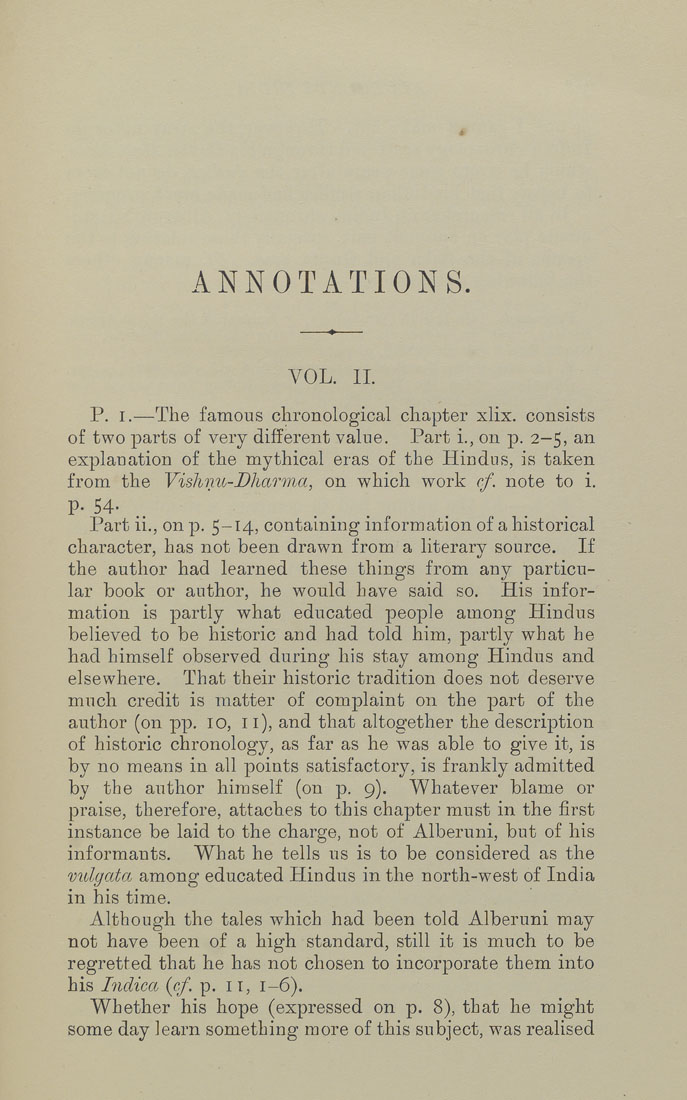ANNOTATIONS.
VOL. IL
P. I.—The famous chronological chapter xlix. consists
of two parts of very different value. Part i., on p. 2—5, an
explanation of the mythical eras of the Hindus, is taken
from the Vishnu-Dhctrmet, on which work cf. note to i.
P- 54- ..
Part ii., on p. 5-14, containing information of a historical
character, has not been drawn from a literary source. If
the author had learned these things from any particu¬
lar book or author, he would have said so. His infor¬
mation is partly what educated people among Hindus
believed to be historic and had told him, partly what he
had himself observed during his stay among Hindus and
elsewhere. That their historic tradition does not deserve
much credit is matter of complaint on the part of the
author (on pp. 10, ii), and that altogether the description
of historic chronology, as far as he was able to give it, is
by no means in all points satisfactory, is frankly admitted
by the author himself (on p. 9). Whatever blame or
praise, therefore, attaches to this chapter must in the first
instance be laid to the charge, not of Alberuni, but of his
informants. What he tells us is to be considered as the
vulgcxta among educated Hindus in the north-west of India
in his time.
Although the tales which had been told Alberuni may
not have been of a high standard, still it is much to be
regretted that he has not chosen to incorporate them into
his Indica (cf. p. 11, I-6),
Whether his hope (expressed on p, 8), that he might
some day learn something more of this subject, was realised
|








